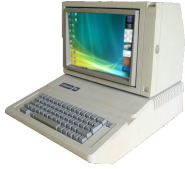Microsoft, Intel, Cisco: "let's bring technology to the classroom"


The webcast can be watched live from 9am PST, 12pm EST and 5pm GMT. From the press release:
"The project will focus on several key areas that will offer the most promising opportunities for transforming education and assessment. Teams of educators and academics will focus on enabling education assessment methodologies and technologies, effective learning environments, and replicable ICT-enabled teaching and assessment methods that foster the development and assessment of the skills students will need to succeed.
To accelerate the project in time to influence the next versions of PISA and TIMSS, the project will review successful classroom practices for the teaching and testing of 21st-century skills and draw implications for large-scale assessments."
Because of the economic downturn, many IT systems are out of date and are having a knock-on effect to students and staff. Such things as being able to work "critically and creatively" and "working co-operatively" are being left behind because of lack of education funding.
With the some areas of university life keeping the pace with cloud computing, dataservers and data farms, super-fast broadband and electronic resources, schools and less funded educational establishments are being kept in the dark.
The key aspect which Microsoft, Intel and Cisco agree on, is the technology in universities and educational establishments needs to be up to date, to ensure "students of today are better prepared for the workforce of tomorrow." If the technology isn't available to those in university, how are we supposed to react when we arrive in the workplace? It's hardly brilliant for the next generation of the IT users, is it?
More on the way: updates will appear here.
5:12pm GMT: The three companies have called upon educational leaders, governments and other corporations to join in the effort, in getting technology and classrooms up to date; enabling better education, better thinking, better collaboration and better preparation
5:17pm GMT: Teacher's don't use technology enough, and virtual learning environments are an approach which could be used to enhance learning for students.
5:30pm GMT: "Without learning environments, we won't receive the goals we hope for." 21st century learning clearly very important.
5:31pm GMT: McGaw takes to the stage; he looks boring. Let's see what he has to say...
5:33pm GMT: Assessments take up too much time, and teachers want to explore more with technology but can't - beause of the tests and assessments. Skills aren't being addressed, conceptualise them, and the assessment process might end up being both roles.
5:37pm GMT: ICT can even take over traditional practices. He's talking about the economy alot; this is getting a little tedious and starting to become too off topic...